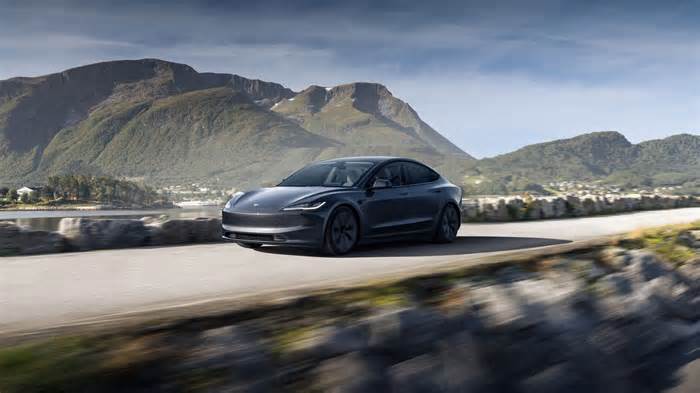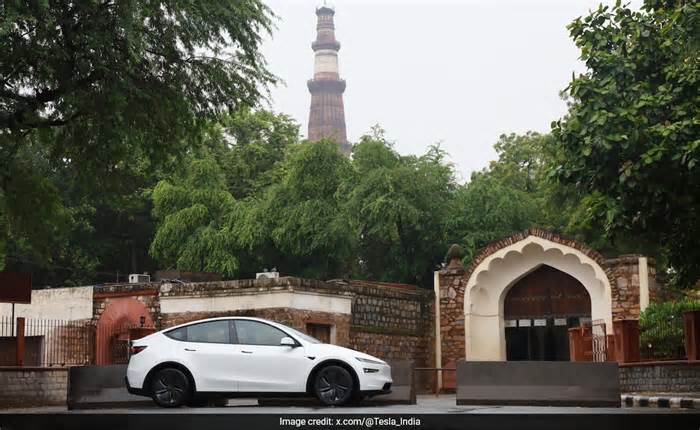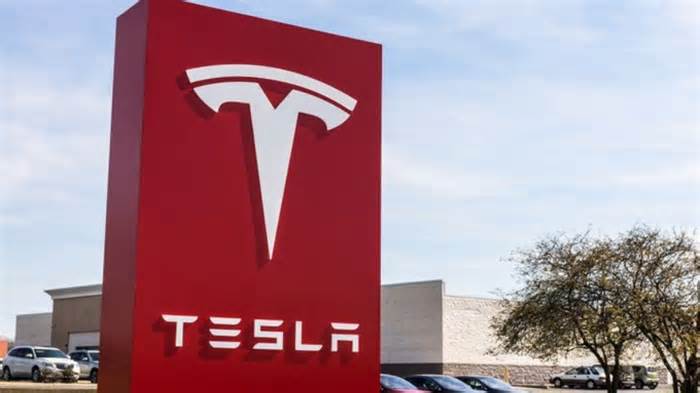
Who swept top of Cars.com's American-Made Index? Hint: It's based in Austin.
- by Austin American-Statesman
- Jun 22, 2025
- 0 Comments
- 0 Likes Flag 0 Of 5

Need a break? Play the USA TODAY Daily Crossword Puzzle.
Publication of the list comes amid scrutiny by the Trump administration of the automotive industry’s trend toward offshoring and the fact vehicles built in the United States still have large percentages of content coming from elsewhere. President Donald Trump has said tariffs he’s imposed on imported vehicles and vehicle parts will increase U.S. production and create high-paying manufacturing jobs, though vehicle prices are on the rise.
Stellantis declined to comment on the results. The automaker earlier this year revised ads saying its vehicles aIn thre “assembled” in the United States instead of “built” to comply better with Federal Trade Commission regulations over the use of the phrase “made in America.”
Although it advertised its “commitment to America” over the past couple of months, Ford’s highest vehicle on the list was the F-150 Lightning electric truck, at No. 22. During last Monday night’s NBA playoffs, the automaker aired its second “From America, For America” campaign ad, criticizing its Detroit rival by stating, “If they were like us, they would have said no to the taxpayer bailout and added thousands of American jobs.”
“Ford is America’s number one automaker and buying a Ford vehicle supports American jobs,” spokesperson Dan Barbossa said in a statement. “We’ve added approximately 13,000 jobs in the U.S. since 2008. We employ more hourly autoworkers than anyone else in the U.S. and support more than 170,000 dealership jobs nationwide.
“We assemble more vehicles in the U.S. and export more than any other automaker. And 80% of the vehicles we sell in the U.S. are assembled here. Ford has invested $50 billion in U.S. vehicle production since 2020, and continuing our legacy of doing the right thing for our customers for more than 120 years.”
GM, which imports more vehicles into the United States than any other automaker, had 15 models on the list, the most of any automaker, though that’s down a quarter from 2020. This month, the Detroit automaker announced a $4 billion investment into three U.S. sites to move production from Mexico.
Foreign automakers
Foreign automakers, however, increasingly make up the list, accounting for 67% this year. Toyota Motor Corp. had 14. Honda and Ford each had 13. Stellantis was fifth with eight. Alabama produces more vehicles on the list than any other state at 17, followed by Michigan with 15.
“It always surprises consumers that there are a bunch of foreign automakers on the list,” Masterson said. “But that’s one of the reasons we do this index, because not everyone’s aware that what the badge is on the hood doesn’t necessarily correlate with where it’s made.”
Toyota’s Corolla Cross Hybrid sedan had the biggest rise on the list, to No. 18 from 66 after movement of engine and transmission production to the United States. Toyota’s RAV4 Hybrid saw the biggest decline, to No. 99 from 65, because of U.S. and Canadian parts content falling to 25% from 67%. The number of EVs on the list more than doubled from last year to 11 from five.
The Tesla Cybertruck didn’t qualify for the list.
Cars.com’s list only looked at vehicles built in the United States. Some foreign-built vehicles, however, still could have U.S. content rivaling vehicles on the latter half of the list, Masterson said.
The fact the American Automobile Labeling Act reports show U.S. and Canadian content of vehicles built by Japanese, Korean and German automakers as higher than that of many U.S.-based brands has been a line of defense for the Trump administration in imposing import taxes of 25% on vehicles and parts from most countries.
“The Big Three, so-called American companies — GM, Ford, Stellantis — they’re not really American companies,” Peter Navarro, senior counselor to Trump on trade and manufacturing, said on CNN in March. “They have less American content in their cars than some of the other companies that are operating in America, like Honda.”
Historically, consumers don’t remember where vehicles are built, said Stephanie Brinley, associate director of S&P Global Inc.’s AutoIntelligence, but this kind of research at least puts the information out there.
Tariffs impact
A survey conducted by Cars.com found tariffs had accelerated 52% of consumers’ timeline to buy a vehicle. Asked if they would pay more for an American-made vehicle, 51% of consumers said they would. Even 5% said they would pay 50% more, said David Greene, Cars.com’s principal industry analyst.
“I don’t think anyone is going to pay 50% more,” he said, “but this is survey data, and it really is tracking sentiment. And certainly that does track that consumers are willing to support U.S. jobs and the U.S. economy.”
Please first to comment
Related Post
Stay Connected
Tweets by elonmuskTo get the latest tweets please make sure you are logged in on X on this browser.






 Energy
Energy

















